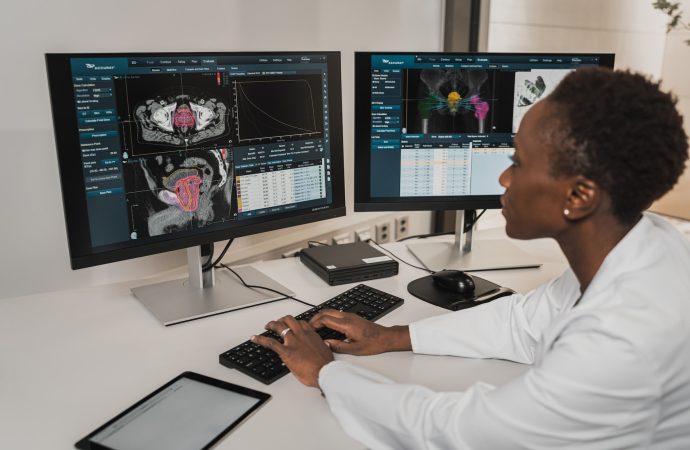As technology continues to evolve and expand, the way we diagnose and treat diseases is changing too. Personalized medicine is a promising new field that utilizes data to tailor diagnosis, treatments, and health outcomes to individuals. From the use of genetic information to the development of personalized drugs and devices, this new approach to healthcare
As technology continues to evolve and expand, the way we diagnose and treat diseases is changing too. Personalized medicine is a promising new field that utilizes data to tailor diagnosis, treatments, and health outcomes to individuals. From the use of genetic information to the development of personalized drugs and devices, this new approach to healthcare promises to revolutionize medicine as we know it. In this blog post, we’ll take a look at how personalized medicine works and why it’s important for the future of healthcare. Read on to learn more!
The benefits of personalized medicine
There are many potential benefits of personalized medicine. Perhaps the most obvious is that it has the potential to greatly improve patient outcomes. By specifically targeting treatments to an individual’s unique genetic makeup, we can more effectively target diseases and achieve better results.
In addition, personalized medicine has the potential to improve patient compliance. Because treatments are targeted to an individual’s specific needs, patients are more likely to adhere to their treatment plan. This improved compliance can lead to better health outcomes and reduced healthcare costs.
Another potential benefit of personalized medicine is that it can help reduce healthcare disparities. By specifically targeting treatments to individuals with certain genetic risk factors, we can help ensure that everyone has access to the best possible care. This can level the playing field and ensure that everyone has an equal chance at a healthy life.
Finally, personalized medicine has the potential to improve our understanding of disease. By studying an individual’s unique genetic makeup, we can learn more about how diseases develop and progress. This knowledge can help us develop new and better treatments for all patients in the future.
The challenges of personalized medicine
Personalized medicine presents a number of challenges for healthcare providers, patients, and insurers. Perhaps the most significant challenge is the lack of understanding about how to use genomic information to improve health outcomes. There is also a lack of evidence-based guidelines for the use of personalized medicine in clinical practice. As a result, many clinicians are reluctant to adopt personalized medicine approaches.
Patients also face challenges when it comes to personalized medicine. They may not be able to find a healthcare provider who is knowledgeable about personalized medicine or who is willing to offer this type of care. In addition, patients may have to pay out-of-pocket for some tests and treatments associated with personalized medicine.
Finally, insurers may be hesitant to cover tests and treatments that are considered experimental or unproven. This can create significant financial barriers for patients who want to access these services.
How personalized medicine is being used today
In precision or personalized medicine, treatments and preventive measures are tailored to the individual patient based on their unique genetic makeup. This approach is in contrast to the “one size fits all” approach of conventional medicine, where the same treatment is given to all patients with a particular disease.
Personalized medicine is already being used in many different ways. For example, genetic testing is increasingly being used to guide treatment decisions. People with certain genes may be more likely to respond well to certain medications or may be at increased risk for certain side effects. In some cases, genetic tests may be used to identify people who are at risk for developing a disease before they have any symptoms. This allows them to take steps to prevent the disease from developing or catching it early when it is most treatable.
Another area where personalized medicine is being used is in cancer treatment. Cancer cells often have different mutations than healthy cells, which can make them more difficult to treat. However, new sequencing technologies are allowing doctors to identify these mutations and target them with specific therapies. This is leading to more effective and less toxic cancer treatments.
There are many other potential applications of personalized medicine, and it is an area of active research. Ultimately, the goal is to use this approach to improve patient care and outcomes by providing more individualized and effective treatments.
Conclusion
Personalized medicine has the potential to revolutionize diagnosis and treatment. By considering genetic, environmental, lifestyle and other factors all at once, healthcare professionals can provide a more accurate diagnosis and customize treatments in order to best treat each individual patient. This will not only save time and resources but also ensure better outcomes for patients, ultimately leading to healthier lives overall. As technology advances and personalized medicine becomes more widely accepted, it could very well be the future of modern healthcare as we know it today.





















Leave a Comment
Your email address will not be published. Required fields are marked with *